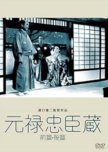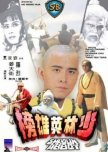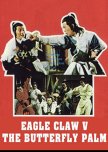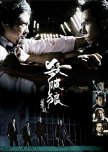
"Human beings have the best of times as kids who know nothing"
A desperate father traversed a dusty road outside of Tokyo searching for work during the Depression in An Inn in Tokyo. Ozu Yasujiro held back nothing in this his final extant silent film. Regardless of the lack of sound, this tender and tragic story of parents struggling to provide the basic necessities of life for their vulnerable children was emotionally compelling.Kihachi and his sons, Zenko and Shoko, carry their meager belongings in one small pack. Most days they must choose between eating or shelter. If they are lucky, they can turn stray dogs in for 40 yen. In a sprawling industrial complex, Kihachi is unable to get past the front guard to even apply for a job at one of the factories. He and his boys meet a widow and her young daughter who are in the same dire straits his family is, maybe worse. Otaka is looking for work, but as a woman, there are few available options. Late one night when Kihachi and the boys have nowhere to go but under an awning in the pouring rain, an old friend appears and takes the bedraggled family in. She helps Kihachi find a job and provides a room for them. Only a thin line stands between them and disaster or happiness.
This film was fairly realistic about the time of economic calamity. It was heartbreaking watching Kihachi and his sons mime eating their favorite meal and drinking sake on painfully empty stomachs. A father having to make the choice of whether to feed his children or provide shelter for them for the night was cruel. Zenko made a foolish choice of purchasing a hat with money he made that could have fed them. His father berated him but then turned around after being hired and spent money on sake. In the desolate fields, Kihachi and Otaka marveled at their children’s resiliency in an endearing moment as the kids developed an instant bond while playing. As Kihachi’s affection for Otaka grew, he assumed she would find respectable work as he did, though his good fortune was aided by an old friend and the benefit of being male. When tragedy inevitably struck both Otaka and Kihachi made devastating sacrifices. “Thus has a soul been saved.” Saved, maybe. But the future of the children was put into further emotional and financial jeopardy. Which further illustrated that people pushed to the edge of survival will do things that might seem immoral, especially when a parent is protecting a child.
Even though Ozu refused to have sound and spoken dialogue, the studio insisted on a musical score. The instrumental music was mournful and a touching addition. Dusty fields outside the factories provided a hopeless wasteland threatening to swallow the destitute wanderers made all the more surreal as children played among the industrial equipment. Sakamoto Takeshi as Kihachi, Aoki Tomio as Zenko, and Iida Choko as Otsune performed in numerous Ozu films and gave strong performances here. Ozu constant, Ryu Chishu, also made a brief appearance in a bit part.
Ozu painted a bleakly realistic picture of poverty and despair with moments of hope and sunshine often provided by the children. He also had his characters illustrate that despite the bleakness of their existence there were still opportunities for heartfelt kindness, laughter, and generosity. If you enjoy the films of Ozu Yasujiro or quality silent films, this is one to try.
5 April 2024
Esta resenha foi útil para você?

"You've gone too far!" "We'll go further!"
The Shaolin Kids had neither kids nor anything Shaolin in it. For a 1970’s Taiwanese martial arts flick it had a larger budget and cast than usual. While the sets may have been more primo, the unwieldy cast and convoluted plot made it difficult to slog through at times.Prime Minister Hu Wei Yung is plotting to overthrow the emperor and has a message for his allies detailing his treacherous plan. He’s been eliminating opponents by various methods, most recently by poisoning Liu Hsin Erh’s father. She’s looking for payback but General Lu stops her. Lu is part of a group aware of Hu’s duplicity and is working to bring him down. Liu manages to get her hands on the secret message, but from there the list has a rocky passage on the way to the Imperial Court.
Shaolin Kids had a strong cast. Polly Shang Kuan Ling Feng played the avenging daughter. Tien “Roc” Peng and Chang Yi played son and father, although both were born in the same year! Carter Wong, in a really bad wig, had a supporting role as one of those loyal to the emperor. He appeared and disappeared throughout the movie. One look at the cast list and it was apparent who was going to be the Big Bad, Yi Yuan had no problem playing the rebellious prime minister.
Generally, the fights were routine, utilizing swords as well as fists and kicks. Polly is always entertaining but the fights weren’t exceptional. The most interesting pairing was the Cliff Lok and Huang Fei Long “Light and Dark” evil duo. The two had their secret move of “Heaven and Earth” where one went high and the other attacked low. The heroes who fell prey to it had never learned to duck or side step to their detriment. Chang Yi and Carter Wong didn’t have much to do but managed to make their fights with the evil duo more entertaining than some of the other combatants. Tien Peng seemed to be an afterthought both in fights and plot.
The Shaolin Kids suffered from poor editing and transitions in narrative as well as a ridiculous title. There was a lack of focus and clarity in the storytelling and the fights weren’t much better. This film wasn’t bad, it was just underwhelming.
29 March 2024
Esta resenha foi útil para você?

When Brother Chao is killed by The Golden Spear, the Liangshan gang of righteous outlaws vows revenge. The only problem, Shi Wen Gong is too tough for any of their fighters to confidently defeat. Timely Rain decides they should call upon the Jade Unicorn and The Prodigy to take him down. Two of the members attempt to trick Lu Chun I into helping them but he sees through them with the aid of Yen Ching. Before he can send the two outlaws home, his adulterous wife and her lover set him up with the corrupt Grand Secretary Liang. While everyone escapes, Lu is captured. The Heroes of Liangshan won’t abandon an honorable man who is suffering because of them and the race is on to save his life before he is executed.
This synopsis sounds interesting and it was once the story got rolling, but it was a tediously slow start. The movie spent 12 minutes briefly introducing characters-27 of them! But that’s not all! The introductions kept going. I counted 46 actors introduced as important characters. It could make the mind reel, especially since most of the heroes don’t show up again until briefly at the end for the final fight. Despite the number of characters, the primary focus was on Lu and Yen Ching. Welcome/Timely Rain, Clever Star, Black Whirlwind, and the Fearless One were also integral to the story. Leopard Man/Lin Chong had fights at the beginning and end of the movie.
David Chiang as The Prodigy was an interesting choice. He has legions of fans, I have just never warmed up to him much in these old films. His fights were underwhelming. Yen Ching’s ability meant he barely touched men and they flipped through the air which seemed odd coming from such a slight actor. The stuntmen earned their money twirling and flopping from what looked like imaginary contact at times. Tamba Tetsuro was far more intimidating as the Jade Unicorn. Ku Feng as Timely Rain was truly welcome for me, he’s one of my favorites. Wang Chung threw himself into the energetic role of Fearless. The final fight pitted five of the heroes and their different styles against five of Shi Wen Gong’s men. The two Japanese actors, Tamba Tetsuro and Kurosawa Toshio also had their chance to face off. For 1972, the fights weren’t bad. Some were clearly better than others and more realistically gory.
Shaw Brothers opened up their check book for this film. The cast of stars may have been large but the cast of extras involved was huge. There were three directors and two assistants (John Woo and Godfrey Ho) along with four fight choreographers.
The sets were massive and the costumes were unique for the different characters although poor Ti Lung had a laughably bad outfit and wig. The biggest drawback for me was the soundtrack. It was wildly anachronistic, synthetic music sounding like it came off of a 1970’s US cop show with hints of Shaft and Clint Eastwood westerns thrown in. Somehow if didn’t match up to this ancient story. And story is what this movie had going for it once it actually started. Unlike the hundreds of thinly plotted kung fu films churned out by Shaw Brothers and Golden Harvest, Water Margin had layers of story within it. There were times it could be repetitive, the Jade Unicorn was rescued and captured several times and the Heroes of Liangshan weren’t always well coordinated in their efforts which nearly led to tragic events. It also seemed pointless to spend so much time introducing the heroes when most of them were never seen again or only briefly at the end of the movie.
If you go into The Water Margin with the understanding that most of the characters in the lengthy introduction will have little to no screen time, it will help. The focus was on Lu being wrongfully charged with a crime and the efforts to clear or rescue him with the revenge against Shi served up for dessert. Though this was epic for a Shaw Brothers production, it will still only be of interest to fans of old martial arts movies or maybe those fans of the novel.
28 March 2024
Esta resenha foi útil para você?

Day drinking with The Tiger Killer
The Delightful Forest is one of the Shaw Brothers films that has been restored and it looked good. Shaw Brothers put forth the money for nice sets and costumes. Ti Lung was young and athletic, always a plus. So why waste Ti, watching him drink and eat more than fight? Apparently, the movie did follow the book, The Water Margin, regarding this part of the Tiger Killer’s life, so maybe that’s what the legendary strong man spent his time doing. I'll leave it to the readers to decide.Legendary Wu Sung who killed a tiger with his bare hands comes to town with blood in his eye after discovering his sister-in-law and her lover murdered his brother. In quick order he kills the murderers and turns himself in. On the way to prison he fights The Witch who owns an inn and then becomes sworn brothers with her shirtless husband. At the prison, the chief warden’s son has plans for him. Golden Eye wants Wu to defeat Jiang Zhong who has taken over The Delightful Forest, a village of inns, brothels, and casinos that had been paying Golden Eye tribute. What Wu will find out is that Jiang has powerful friends who also want control of the Delightful Forest.
“When people are drunk, the world and time don’t exist”
Ti Lung seemed to be having a lot of fun playing the cocky, heavy drinking, and heavy hitting Hero Wu. I’ve never seen him so light-hearted in a film. Wu drank on the way to prison, he drank in prison, and he stopped at the 12 places on the way to fight Jiang to drink 3 large bowls of wine at each. He drank heavily at the bad guy’s lair. This wasn’t even drunken kung fu fist, apparently the booze powered him up even when he wasn’t fighting. However, like Sampson, he stupidly told the bad guy the secret to beating him.
There were few significant fights and most were over quickly. The rest of the time Wu spent eating and drinking. It took 52 minutes before Wu had drunk enough to meet Jiang in a quick battle in the town center. One of my favorite fight choreographers, Lau Kar Leung was one of four on this film. There didn’t seem to be enough fights to warrant that amount, but Tang Chia, Lau Kar Wing, and Chan Chuen all contributed. Some of the most impressive fights were the ones with Ti Lung wearing a cangue. Even if it was made out of Styrofoam or a lightweight material, the awkwardness of it seemed like it could have been highly problematic to work around and not get injured engaging with various stuntmen. Right before one of these fights they showed Shaw Tower, the pagoda Cheng Pei Pei had to climb in Lady Hermit (1971). The pagoda made cameos in many SB films and I’m always on the lookout for it. The final rampage was impressive but lasted all of 9 minutes and there were some serious editing issues with it. This was a Chang Cheh film which meant there were buckets of blood in those final minutes.
If you want to see the live action version of this part of Wu Sung’s life you might really enjoy this. I felt like the only sober person at the party. Wu Sung’s drinking just wasn’t very interesting to me. When they finally let Ti Lung loose, the fights were good and he was quite charismatic. The Delightful Forest falls in the slightly below average category for me from this time period and genre, more like the Drunken Forest.
27 March 2024
Esta resenha foi útil para você?

Sgt. Chan Ga Kui is part of a sting operation on drug cartels having a meeting in a shanty town. They are particularly after Boss Koo and his gang. After destroying most of the squatters’ village, and a spectacular rundown of an escaping bus, Chan slaps the cuffs on Koo and becomes a local hero and is used for recruitment. Superintendent Li decides to use Koo’s secretary, Salina Fong, as a witness, which puts her life in jeopardy. Chan is ordered to be her bodyguard. From then on, the case and Chan’s life take a turn for the worse.
I enjoyed the first third of this film and the last third. The middle third dragged badly for me. There was a long “comedic” scene with his girlfriend. A painfully bad trial scene. And then another comedic scene where a woman who had been raped and a woman who was being beaten by her husband were completely ignored during a phone gag. I also had to remind myself that the beautiful and talented Maggie Cheung was paying her dues in the thankless, idiotic girlfriend role.
The stunts were phenomenal for the time. The umbrella and bus stunt, numerous fights involving sugar glass, and the final stunt with Chan in a mall sliding down a tall pole surrounded by draping lights were leaps and bounds beyond the status quo in 1985. They were also inherently dangerous. Chan was injured twice during filming. Brigitte Lin even stepped up and was thrown through a table and also a plate glass window. Few movies unless they were filmed in a glass factory would have more people shattering glass with their bodies. Proof also that movie glass is magical as no characters were badly cut despite all the bodies bouncing off the huge panes and shattered pieces of translucent blades.
Police Story broke new ground for fighting and action stunts even though the story did not. Chan’s athleticism and flexibility was a thing of wonder. My rating is based on the astonishing stunts at the beginning and ending of the film and also on my pre-1990’s grading curve.
25 March 2024
Esta resenha foi útil para você?

"My king, don't overdo!"
The Greatest Plot was a surprisingly well made 1977 Taiwanese kung fu film. So many of the films made in Taiwan were filmed outside and/or in the dark as if they didn’t have a permit for filming. The stories could also be notoriously threadbare. Though it boasted to have the greatest plot, it might have been exaggerating. This film did however attempt to take a deeper dive into the story rather than leaning on the tried and true secret list or book themes.When the Emperor dies Prince Yung Zhen is named the new leader much to the surprise and chagrin of all. He promises his buddies, The Eight Knights, that being Emperor won’t go to his head, he will still be their friend. Oh, by the way, could they please protect him when he took power? After being crowned, the eight are treated to a feast which includes poison and flaming arrows. The few who survive regroup with their sifu and plan to take the duplicitous tyrant down. Marshal Nien who had dutifully served the Emperor also discovered how much his loyalty was worth. Other than the typical guards which would be problematic to overcome, the heroes would have to survive the deadly traps and weapons hidden in the Emperor’s palace.
Aside from the story of good vs evil, characters went mad, and vengeful “ghosts” returned for retribution. The randy Emperor was often implored by his aids, “My king, don’t overdo!” Which came across pretty funny. The major drawback to the writing was that The Eight Knights were not fleshed or well differentiated. Hsu Feng was the only one who had any lines for the most part. Not the movie makers fault, but also causing me confusion was that the only copy I could find available had atrocious dubbing and subs. On a positive note, I was pleased that in 1977 Hsu Feng was allowed to be the primary hero of the film, many of the martial arts films during this time had fewer and fewer capable women in them.
Of the Taiwanese martial arts films I’ve watched, The Greatest Plot had some of the most luxurious costumes. There were also the requisite cheesy outfits. One of the “Dalai Lama’s” men wore a one shouldered leopard wrestling singlet. Though there weren’t many indoor sets those used were of a higher class than usual. Hsu Feng had the ability to be a beautiful warrior who could throw fear into the eyes of her enemy. Lo Lieh as the Martial gave a nicely nuanced performance of a man who could not believe his friend was not who he thought he was. For me, Yueh Hua always made a better villain than hero and he had no problem playing the treacherous and horny emperor.
The fights were well choreographed, though some were shot in the dark and almost impossible to make out. While the main three of the cast were more actors than martial artists, they all moved gracefully and believably. There was a wide assortment of kooky kung fu weapons. The razor bladed shield made an appearance with the ability to turn into a guillotine as well. The world’s largest possessed Roomba took out several characters with its protruding spears and ability to fire spears. Maybe ancient China had AI to guide the projectiles or maybe it really was possessed. Pretty sure it ate one guy, too. The mop up attachment would be needed after the mess it made. Swinging poles imbedded with blades made it hard for the heroes who weren’t cleaned up by the swirling spears of death to not end up Shish Kebabed.
The Greatest Plot was far from it, but for a martial arts movie, it did try to go a more Shakespearean route instead of the lowest common denominator one. A strong cast helped to cover over the lack of character development and plot holes. Definitely only for fans of old martial arts movies and who can tolerate a film in need of restoration. Rated on a curve.
21 March 2024
Esta resenha foi útil para você?

Oishi discovered that his request for the Asano family to be restored failed which caused him and the other retainers to dance with joy. They could now avenge their lord and restore everyone’s honor. Oishi promptly set out to find more people to talk to, not the other Ronin, they were the invisible Ronin. The day after his visit to Lady Asano she received a letter detailing the Asano Ronin’s attack on Kira’s castle.
Four hours of talking, 47 Ronin, and the most important action shown was the hotheaded lord at the beginning of the movie who caused the downfall of his family. I used the analogy of Star Wars in my review of the first part. To continue that analogy, this film would be like the Rebel Alliance General Dodonna (minor character) receiving an email that the Death Star had successfully been blown up. Anything exciting in these films happened off screen. Show, don’t tell, is a much better payoff for the audience. I want to see Luke flying his X-Wing with Darth Vader right behind and those 47 Ronin attacking the castle and lopping off Kira’s head.
After Kira’s defeat there was almost an hour left. While confined, the Ronin had time for a talent show, flower arranging, and lovers saying good-bye, lovers we never met. At the beginning of the movie, we were treated to a Noh performance. But all was well because we were told over and over and over and over how taking vengeance on Lord Kira was the honorable thing to do and restored the honor of the family and the Ronin and showed how honorable Ronin behave. Even Lord Asano’s wife said her husband pulling a sword in the Shogun’s palace was a boneheaded move but he must be avenged or he would forever be a laughingstock. Asano’s impulsive action affected thousands of lives and caused at least 50 deaths, not counting the Kira contingent, all because someone called him boorish. If this movie was supposed to inspire the audience, I wonder how well it succeeded.
The one area where the movie didn’t let me down was Mizoguchi’s filming style. Every frame was exquisite. The sets and exterior shots were refined and well lit. The only drawback was often the characters were filmed so far away it was difficult to make out their facial expressions. The technique was quite distancing emotionally from what should have been an emotional movie. Then there were those invisible Ronin. Seventeen men stood in for the 47 and we learned almost nothing about any of them, no connection, no empathy for their plight. When they did talk it was all about being ready to die. Or being happy they were about to die. Or that everyone died with honor. Even for a propaganda film, the call for self-sacrifice was laid on thick. The kids were told in the first film, “Samurai children must behave as if nothing is wrong during a crisis.” I suppose when you’re about to awaken a sleeping giant you want everyone onboard with the party line.
For a movie with the title The 47 Ronin, this felt more like homework than entertainment. Four hours of dialogue with much of it repetitive was more than I could take. I want to see outtakes of the exciting elements that happened off screen-forbidden love and castle assaults. Since Mizoguchi refused to show us those things, he could have easily condensed this movie to two hours. It’s not like he was devoting those four hours to character development beyond their loyalty, stoicism, and desire for revenge and death. In the first film, it appeared he might have been leaning toward the characters resisting the rules of a corrupt Shogunate and rebelling (honorably of course), instead their actions were seen as heroic as they adhered to the bushido code and surrendered to the authority of the Shogun. An interesting film time capsule from the war era but it would help to be a fan of Mizoguchi or chatty samurai films with zero action.
18 March 2024
Esta resenha foi útil para você?

"Punches and kicks don't have eyes!"
Shaolin Abbot was another telling of the burning of the Southern Shaolin Temple, this time with David Chiang as Chin San and Lo Lieh once again playing the traitorous white bearded Taoist Pai Mei.The Shaolin temple has been resisting the Qings but lacks proper weaponry. Monk Chin San is sent to the Taoist temple in Er Mei to learn how to make firearms and gain blueprints for them. He also spends six months learning new kung fu techniques and is befriended by the master there and his niece Wu Mei. The second in command, Pai Mei, collaborates with the Qings and leaves rather than have a Shaolin monk in residence. Upon returning home to the Shaolin temple, Chin San finds the monks dead and the temple blown up. The dying abbot tells him to take the weapon blueprints south to Guangdong and rebuild the temple there. Chin San heads south and finds a loyal Buddhist patron who convinces others to support the building of a new monastery. Unfortunately, the Qings and Pai Mei are hot on Chin San’s trail and determined to kill the monk before he can complete his plans.
Shaolin Abbot had what should have been a compelling story, but I found it underwhelming. Running around 80 minutes, it felt twice that long. The acting was okay. The fights were slow, painfully slow, even for 1979. I could have handled kung fu posing if the choreography or the characters were more interesting. They weren’t bad, just bland. These are the hardest kind of reviews for me to write. Shaolin Abbot wasn’t terrible or good, just okay.
17 March 2024
Esta resenha foi útil para você?

Butterflies deserved better
Eagle’s Claws & the Butterfly Palm was a deeply disappointing kung fu flick. The only thing it had going for it were spinning butterfly shields with spikes on them. Who knew butterflies could be so deadly?The defeated Mongol king along with his son and daughter are plotting how to return to power. In the opening minutes, the Mongol king wearing his lemur tails hat is assassinated, leaving the siblings in charge. The princess has magic powers and can control people with a secret butterfly potion and her flute. The last of the clans work together to bring down the deadly duo but become ensnared in the Butterfly clan’s plots. Three heroes-Mao, Eagle, and Lung plan to bring the Butterfly clan and Mongol princess down, but spend most of their time either in an abandoned temple or wandering around. Things are not looking up for the good guys.
When someone asked, “Who’s there?” when he entered a room, the answer should have been, “Who knows, it’s so d*mn dark in here!” Most of the fight scenes were filmed in the dark making it almost impossible to follow the action. Perhaps it was by design as the fight choreography was quite poor illustrated in the few well lit fights. Even with all the kung fu posing, many of the hits and kicks missed by a mile. Lo Lieh did a twist on his red hands from King Boxer, only this time with the butterfly palm. The sword work was also rudimentary, though the creative stuntmen tried to jazz it up with flipping over multiple railings or doing creative falls. The producers must have gotten a deal on buying trampolines in bulk. Characters leaped across the country and even rooms like giant bullfrogs.
The female lead known only as Lung’s daughter was extremely annoying both from the writing and acting. Everyone else seemed to be going through the motions as if they realized this film was a real stinker. Lo Lieh can usually perk up any movie, but looked like he wanted to fire his agent for getting him involved in the movie. Tsung Hua, Yu Tien Lung, Nancy Lau, Sun Chia Lin, and Lee Kwan were the only actors with significant lines, everyone else seemed to be a guest role. Maybe the others negotiated ways to stay off the screen for professional preservation. The story barely made sense and tried to use double crosses, secret identities, mind control, and treachery to spice things up. It didn’t help. Characters hopscotched around without any real purpose. A bad high school play would have been a step-up from this movie.
I normally save low scores like I gave this one for movies who delve into sexual exploitation. This film was just ridiculously bad. Bad script. Bad fights. Bad acting. Bad lighting. And lastly, hilariously bad costumes. I can even handle bad if the movie entertains me. Eagle’s Claws & the Butterfly Palm never took flight.
8 March 2024
Esta resenha foi útil para você?

"You don't have anyone to fight with anymore"
In SPL: Sha Po Lang aka Kill Zone it didn’t matter what their star was everyone suffered painfully. Those three troubling stars---power, destruction, lust---there was very little lust but an awful lot of destruction for the cops and robbers in Hong Kong on a fateful Father’s Day.Inspector Chan is aboard a vehicle with a witness and his family. The vehicle is attacked and the witness is killed leaving a young daughter behind. With no witness, the notorious criminal Wong Po is released from jail. When the surgeon removes a large shard of glass from Chan’s head, he discovers a tumor. Chan adopts the witness’ daughter and spends the next three years with his team trying to bring down Wong Po. As the clock ticks down on his life, Chan prepares to retire. The conscientious Inspector Ma comes on board to take his place. It doesn’t take long for Ma to realize that Wong Po isn’t the only one engaging in illegal activities.
Director Wilson Yip and fight choreographer Donnie Yen attempted to turn back the clock in this Triad film by using a minimum of wires and undercranking. With the casting of Donnie, Sammo Hung, and Wu Jing, the expectation was for spectacular fights. There were a couple of small skirmishes near the beginning, but you will have to wait until the last twenty minutes or so to be rewarded for sitting through the corruption, murders, and hand wringing on Father’s Day. The fight between Donnie Yen and Wu Jing was unbelievably fast and vicious. The last fight on the docket was Donnie vs Sammo. This fight included more grappling and was brutal and punishing. Donnie may have been 42 but Sammo was 53 and showed he could still bring it! Donnie’s Inspector Ma learned why one of the main rules in fighting is---Never turn your back on your enemy! Another character learned the tsunami lesson, if all the bad guys are running away it means there is either a Balrog loose from Middle Earth or a very scary bad guy is headed your way. Run!
Most of the action took place on Father’s Day prior to 1997. As a father or child, every character had an issue. The story was melodramatic, nihilistic, and just a big Debbie Downer. The acting was excellent for the most part. Simon Yam made a great weary Inspector Chan. Sammo brought a bit of humanity as a father and husband to his ruthless Triad boss. He also didn’t overact and make the character cartoonish as so often happens with martial arts villains. Donnie played low key as he often did, turning on the energy when the fights began.
Sha Po Lang wasn’t a great movie and the script felt like a retread of better crime films. Infernal Affairs it wasn’t. The saving grace was that the final two fights were memorable, enough to bump my rating up. There’s an old saying that “crime doesn’t pay” but it does pay back. Character after character was sliced to bits. I had to watch through my fingers on a couple of fights. Everyone seemed to be in the Kill Zone.
5 March 2024
Esta resenha foi útil para você?

"I am through with hell"
When I heard there was a movie called Zatoichi Meets Yojimbo I could not wait to watch it! The fall was long and hard when I realized that the title was false advertising. Mifune Toshiro was in the movie playing a feckless samurai, but nothing like the cagey Yojimbo. Despite a few hints thrown out about the Kurosawa film, this samurai had a name, Sasa. I wouldn’t have been nearly as disappointed if they’d just titled it Zatoichi and the Two-Bit Samurai.Zatoichi is tired of the blood and decides to return to his hometown with the babbling brook and plum blossoms he talks about at length. It doesn’t take long before he realizes the town is under new management. Two years ago during a terrible famine, other villages heard about the town’s food reserves and attacked. The local leader hired the yakuza to come in, and just like vampires, once you invite them in you can’t get rid of them. After lots of hemming and hawing, Zatoichi decides to stay in town and begins work as the Big Bad Eboshiya’s masseuse/bodyguard. Across town Sasa has been hired by the Big Bad’s son to be his bodyguard. Sasa mostly drinks, sleeps, and cons Masagoro out of coins for strategic information. The blind swordsman and the samurai get on each other’s bad sides, more so because of the comely Umeno than whatever is going on in with the yakuza family. Long story short, everyone wants to know where some hidden gold is.
If they’d given Zatoichi and Sasa a bromance this might have been a fun movie. They couldn’t make Mifune a real bad guy because no one was going to believe Zatoichi could take him down. Bad enough they made Sasa greedy and lazy, and not as smart as Zatoichi. Again, it goes back to the title, because during the whole movie, it was impossible to not compare Sasa and Yojimbo.
The fights didn’t really start until the final third of the film. Another demerit for me. You have two of the greatest swordsmen in the land and they sit around talking and drinking? A new threat, named Kuzurya, waltzes into town with a connection to Sasa and starts eliminating people left and right. The double crosses and corruption were hip deep in the tangled plot line which was needlessly confusing. At nearly two hours with not nearly enough action, the plot became repetitive and dragged. The swordfight choreography was fairly lackluster as well, despite the high body count.
Zatoichi came to town and did his good deed, but even he was hit by gold fever. Whether Sasa or Yojimbo, the character was still played by Mifune Toshiro which gave ample opportunities that seemed to have been missed for a more exciting film. Zatoichi Meets Yojimbo had moments that were entertaining, but it could have been so much more.
1 March 2024
Esta resenha foi útil para você?

"Someone went ahead of you again"
Lola Igna showed that a long life isn’t always a gift when a person has to watch as her family and friends all leave her behind. Veteran Filipino actress Angie Ferro portrayed the 118-year-old Igna who was in the running for oldest grandmother in the world. Lola Igna was a message of resiliency, quiet resignation, and reconciliation shown through the life of one woman and her tattered family.Lola Igna’s great-granddaughter Nida takes the older woman to the mayor’s office where she is to receive an award for being the oldest grandmother in the Philippines. When asked what she hasn’t done that she would like to do by reporters, she tells them what she is looking forward to is death. While researching her age, the group Amazing People of the World believes she might be the oldest grandmother in the world which would come with a substantial cash prize. Nida is thrilled with this news and immediately seeks to cash in on Lola Igna’s newfound fame. On one of the tours to Igna’s house in the rice fields, her long lost great-great grandson arrives and makes his way into her life.
Director Roy depicted Lola Igna’s sparse surroundings without sliding into poverty porn. The flies, chamber pot, and simple meals didn’t come across as denigrating. Angie Ferro played Igna with dignity and a sense of humor while also hiding her sorrow at having lost family, friends, and even the man who was the first baby she ever delivered as a midwife. After some coconut wine her loneliness and her anger at God for leaving behind a person willing and ready to join her departed husband while younger people died spewed out. Yves Flores as Tim bounced into her world with his cell phone and camera and a healthy dose of respect for his great-great grandmother. He was also a reminder to everyone of his mother who left years before and never returned.
Lola Igna was a glimpse into the heartache people feel when they’ve attended too many wakes. The last sibling, the last child, the one who outlived those who were born after her was a terrible burden. Death is part of life, and Igna was ready to join her beloved unafraid of what lie ahead. While her final destination was delayed, Igna also gave freely of herself to her family and community. There were those who benefited financially from the centenarian yet the movie overwhelming showed the community’s and family’s loving generosity which led to heartfelt reconciliations. No life is free from sorrow but Lola Igna showed that it could be faced with grace and when necessary, a full chamber pot.
22 February 2024
Esta resenha foi útil para você?

A valuable piece of film history
I love that for around 3 minutes in time I could step back into 1899 Japan and have a brief glimpse into the early film world. Momijigari was more of a documentary of two great Kabuki actors near the end of their lives in brief scenes from a famous play. It was still worth watching and surprisingly entertaining.Danjuro played the princess who was actually a demon in disguise. He gracefully danced with his fans, a challenge with the wind blowing as they filmed it outdoors. At one point, one of the fans blew out of his hand, rescued by the stagehand. Kikugoro played Taira no Koremori who valiantly fought the now ugly demon with long flowing hair. The demon used a maple branch against Taira’s katana. I was particularly impressed with Danjuro’s hair fighting skills. The fight was compressed in a small area with the costumed stagehand picking up debris as the two took part in their fighting choreography.
Though filmed in 1899, it wasn’t shown in public until 1903 when Danjuro was too ill to take the stage and gave his permission. Kikugoro had already died at that time making it even more popular for people to see. It was then shown again after Danjuro’s death later that year. Though Danjuro was reluctant about having their performance filmed, the two actors’ legacies have been kept alive through these 3 minutes and 50 seconds worth of grainy film one hundred and twenty-five years later.
If you enjoy old films and film history, this is definitely worth less than five minutes of your time.
19 February 2024
Esta resenha foi útil para você?

"Happiness comes only through effort"
Late Spring was the first film by director Ozu Yasujiro I ever watched. I had no idea who he was or anything about films from this era. For the most part, I was unimpressed. After watching Late Autumn which was a loose remake of Late Spring, I decided it was time to revisit one of Ozu’s classics.The plot is deceptively simple. Noriko is 27 years old and on the cusp of being too old for marriage. She and her widowed father have a comfortable relationship neither wants to change. It is an aunt who shakes things up by insisting on finding her a husband.
Ozu often focused on this transitional part of family life-a child on the verge of leaving and an aging parent facing loneliness. Noriko's familiar routine started to ebb away as her father came to terms with what was necessary for her future which begat sadness and grief. Noriko had become too much of a surrogate wife and needed to become a real wife with a real husband which would require her to leave the nest as children do. Her father recognized he would not always be around and the only way to protect her and secure her happiness was to marry her off.
Though the mother had died some time ago, her presence felt tangible. Noriko showed great jealousy when her father mentioned he might remarry. She felt men remarrying was “filthy” and “indecent”. Apparently, older people no longer required companionship and intimacy. Noriko seemed overly involved and attached to her father. “I’m the only one who knows what he needs.” Was she upset for her mother’s sake or her own? During a Noh performance, her feelings shown through when she saw the perspective woman was also attending. Ozu’s astounding ability created a deeply emotional scene simply by cutting back and forth between the characters’ reactions to each other and the performers. During another evolutionary moment as daughter and father were lying side by side, Ozu focused on a vase for long seconds as Noriko processed her emotions and gave the audience the same meditative chance.
Ozu’s skill and his ability to compose exquisite frames was, as always, impeccable. Where I struggled with Late Spring is what caused me to stumble last time---Hara Setsuko’s performance. Her overly bright smile for the first half of the movie could be disconcerting. Sometimes a smile hides a person’s pain and sometimes it hides a vacancy sign. Smiling while riding a bike and enjoying the moment seemed natural, smiling when taunting the professor for being “filthy” seemed strange. She is a much admired actress and while I have enjoyed some of her darker performances, too often she over-relied on her smile. The second half had her character behaving petulantly and pouting which seemed out of place for a grown woman who had survived forced labor during the war.
As a modern viewer these plots were uncomfortable and I had to continually remind myself this was 1949. A woman was basically sent from her father’s house to another man’s house with little say as there weren’t many other options available to her. Noriko’s father complained that daughters were pointless. “You raise them and they leave. If they don’t marry you worry and if they do you’re disappointed.” Noriko worried her father would be helpless without her. Modern me thinks her father would learn to pick up the clothes he casually dropped on the floor himself and pour his own glass of water while brushing his teeth.
Despite my reservations, Ozu knew how to incorporate the most basic concepts of life and make them interesting. Noriko’s father, expertly played by Ryu Chishu, grasped that loneliness and death were a part of life and he wanted his daughter’s future taken care of. The plot might have been simple but Ozu was a master of teasing out the buried emotional details of changing family relationships. I rated this higher than my first watch and perhaps in the future, I’ll appreciate it even more. The father’s speech to Noriko was memorable then and now, one of the strongest from any Ozu film I’ve seen and still holds true today.
“Happiness isn’t something you wait around for. It’s something you create for yourself.”
14 February 2024
Esta resenha foi útil para você?

Film saved by Jang Hyuk's particular set of skills
The Killer tread a familiar action movie path. Did it matter? Not with Jang Hyuk showing off his particular set of skills as many times as the writers could work a fight scene in. His quiet confidence and proficient use of a body well honed by real life martial arts training kept me engaged from beginning to end.Retired killer, Ui Gang, is maneuvered into babysitting the seventeen-year-old daughter of his wife’s friend when the two women embark on a three-week vacation. A reluctant sitter at best, Ui Gang finds himself dragged back into his profession when Yoon Ji is repeatedly kidnapped by human traffickers. The killer never breaks a sweat or even raises his voice as he works his way through the bad guy hierarchy. There’s never a moment when he doesn’t look completely in control, even when facing a gang of axe wielding thugs.
If I laid out the plot in detail, few people would find it surprising. If you’ve seen Nowhere Man, John Wick, or Taken or a jillion other movies with a similar story you’ll have the whole thing figured out in a matter of minutes. With this kind of genre, execution matters, and The Killer executed it well. As in there were executions aplenty. The action drove the story and rarely slowed down long enough for the viewer to start counting plot holes.
Jang Hyuk is an accomplished martial artist in real life and it showed in his agility and quick moves. The brutal and bloody fights were well choreographed and exciting to watch. Ui Gang dispatched the baddies with a number of different weapons or whatever sharp object happened to be nearby. Shadowy scenes were often Illuminated with neon lighting making the action seem otherworldly.
The Killer didn’t have the most inventive script. Luckily this genre doesn’t require uniqueness, only thrilling action. Would the film have worked without charismatic Jang Hyuk and his martial arts skills selling the action? Thankfully, we didn’t have to find out.
4 February 2024
Esta resenha foi útil para você?

 55
55 223
223 11
11






















